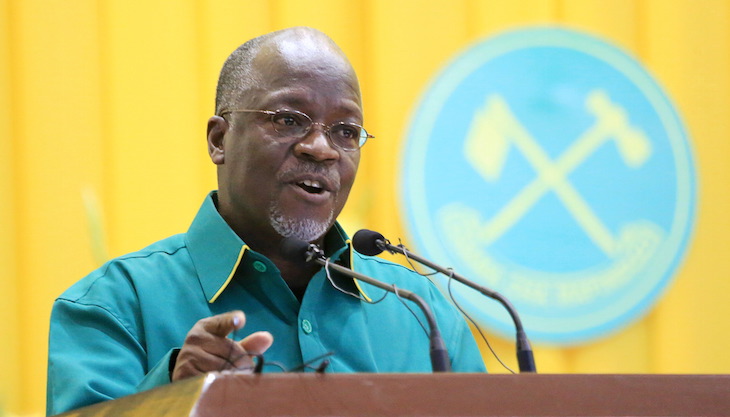Tanzania needs to meet energy majors halfway or face falling further behind Mozambique in exploiting liquefied natural gas (LNG).
Tanzania said in March that it plans to negotiate terms for developing a $30bn LNG project with international companies led by Norway’s Equinor. The country has an estimated 58 trillion cubic feet of natural gas reserves.
In 2014, Tanzania was identified as the top destination for foreign direct investment in East Africa by the United Nations Conference on Trade and Development. That status has been undermined. The government of President John Magufuli has raised the bar by insisting that export projects have a strong focus on domestic infrastructure development.
- Tanzania has passed laws limiting foreign ownership of natural resources.
- In September 2018, it banned international arbitration as a method for resolving investor-state disputes.
Negotiations between the government and international oil companies, which started in 2017, have so far failed to lead to a deal to export natural gas.
- “Multinationals need Tanzania to meet them halfway,” says Harriet Okwi, an African energy consultant with Okwi & Partners in Paris. “Otherwise, the country’s energy reserves will continue to be operated by small local players who don’t actively explore but sit on their licence and wait for it to be bought out.”
The government is now allowed to renegotiate or remove terms from contracts relating to natural resources that it decides it doesn’t like. The danger, Okwi argues, is that energy competitors such as Mozambique will seize the initiative. “Mozambique is more go-ahead than Tanzania, and more proactive in attracting investors,” Okwi says. “It takes more of a global energy-market perspective.”
Mozambique’s challenge
Fitch in February downgraded Tanzania’s long-term political risk index score to 60.5 out of 100 from 64.4, largely owing to the government’s authoritarian policies. Sharp regulatory shifts will likely leave investors more wary of developing projects in Tanzania, Fitch said on 1 March.
The Tanzanian government has a suspicious attitude towards international investors and taxes foreign energy operators too much, Okwi says. The result is that industry players have been deterred by a series of unsuccessful licensing rounds.
Neighbouring Mozambique, she argues, is more open to external advice and has anticipated that the gas market will in coming years see oversupply due to shale from the US and Australia. The Maputo government sees the urgency in trying to get the gas out before the price falls, and so legislation and approvals are being expedited. Tanzania, meanwhile, is “dragging its feet and is still on a learning curve. The country needs to understand that it’s a global business.”
Mozambique, of course, carries risks of its own:
- In 2016, the discovery of undisclosed government loans worth up to $2bn led to the withdrawal of IMF aid and debt payments have since been missed.
- In February 2019, Anadarko Petroleum said a worker was killed near the construction site for its massive LNG project in northern Mozambique. Anadarko has said it will take the final investment decision on the project in the first half of this year.
- Still, Fitch at the start of March argued that the resumption of peace talks between Mozambique’s President Filipe Nyusi and the opposition Renamo party is “a positive signal for short-term stability” ahead of general elections in October.
Eni’s floating LNG project in Mozambique, already under construction, is due to come onstream in 2022. Andarko and ExxonMobil both target first production in the mid-2020s. The Petroleum Economist argues that even if talks conclude quickly, any Tanzanian project is unlikely to be producing before the end of the 2020s at the earliest.
Bottom Line
Tanzania has already fallen behind Mozambique in exploiting its LNG resources. A willingness to accept international arbitration to disputes would be a first step to helping it catch up.
Understand Africa’s tomorrow… today
We believe that Africa is poorly represented, and badly under-estimated. Beyond the vast opportunity manifest in African markets, we highlight people who make a difference; leaders turning the tide, youth driving change, and an indefatigable business community. That is what we believe will change the continent, and that is what we report on. With hard-hitting investigations, innovative analysis and deep dives into countries and sectors, The Africa Report delivers the insight you need.
View subscription options

